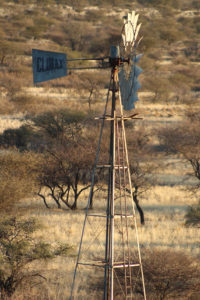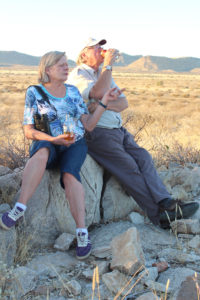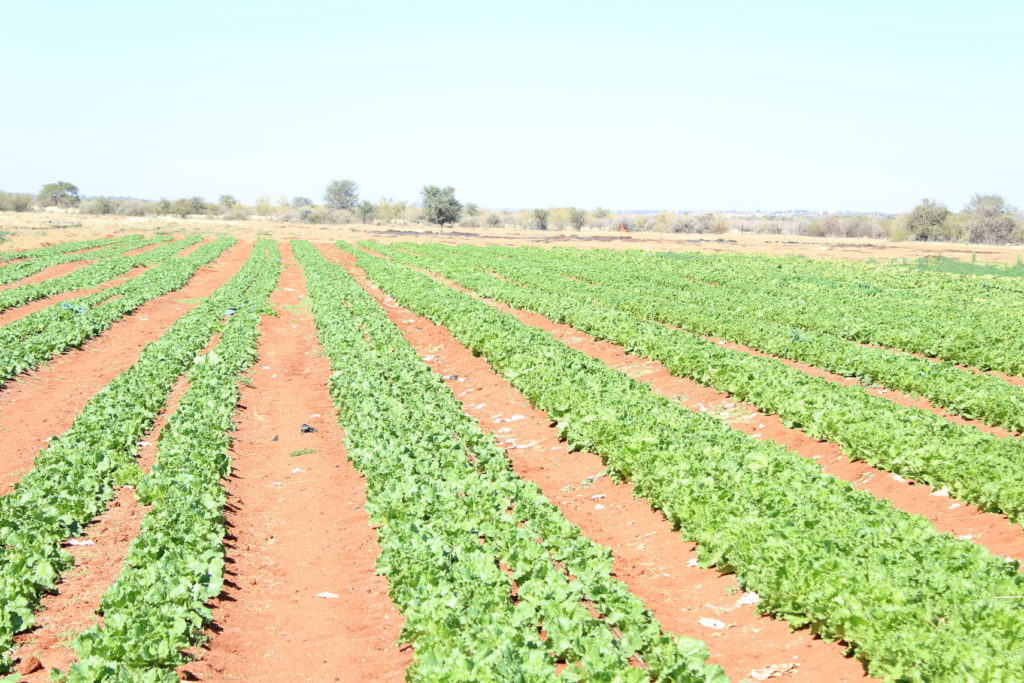Over the past few weeks in Namibia, we have had the opportunity to see and visit operations where individuals who own land are determining how to survive and thrive. There are many challenges facing private landowners’ livelihoods including drought, unreliable energy sources, limited to nonexistent internet and telephone service, lack of consistent labor, security issues, and government taxation of commercial land owners. In fact, many have left the rural areas to find a better life and make income in urban areas. At one time, 70% of the population was in the rural area, but this is shifting. This shift influences the availability of a much-needed labor force in agricultural operations. Farming is labor intensive and requires people.

A windmill in Farm Habis provides much needed water. Drought has left some of these windmills out of water and farms abandoned.
Water and the availability of water are proving an enormous challenge to Namibia. Presently, many farmers use windmills to pump water from “bore holes” in the ground. Global warming, lack of rain, and drought are contributing factors to an already difficult situation. Many farmers have had to drastically sell off and reduce their animal herds to survive. Many have stopped farming due to lack of water.
At Farm Habis, the cattle operation of Dr. Herbert Schneider and family, has capacity for 300 to 350 cattle. Presently they have 50 head because of drought and the decision not to overgraze their 5,500 hectares of land. Son, Bernd Schneider is exploring the possibility of building a lodge as a new source of income. His goal is to secure income to meet the present day financial demands of the family farm. He also wants to provide a sustainable income that will allow his parents to live out their days at Habis Farm without additional financial burden in their golden years.

Dr. and Mrs. Herbert Schneider on Farm Habis in Namibia. This farm has been owned by the Schneider family since 1949.
In addition, in many rural areas of Namibia, electricity is non-existent. Farmers use oil lamps and candles for light sources in the evening and at nightfall. Wood fires are used for cooking and to heat water for bathing and washing dishes. Lack of sustainable electricity and energy sources in rural areas has encouraged some farmers to install solar panels to harness solar power. Sun is plentiful in Namibia. Without sustainable energy from the sun, there would be no power to run the pumps necessary to provide water. There would be no electricity for light, charging cell phones, computers, or even small appliances.
Those that remain are developing entrepreneurial skills. Fourth-generation farmer, Jimmy O’Kennedy, a commercial farmer in Stampriet is creative and innovative. He is constantly exploring new methodologies and technologies to maintain the productivity of his land. Jimmy uses drip irrigation to conserve water. Recently, to save money, he began using Bio-Ocean, an organic fertilizer. The fertilizer is made from chicken manure, seaweed, and additional nutrients. His field crops are delicious and a beautiful green against the red sandy soil of Namibia.

Leave a Reply